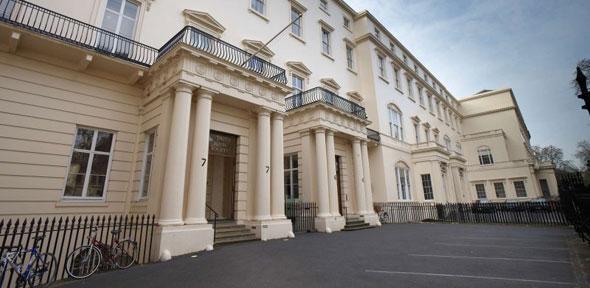
Four Cambridge academics are among the winners of the Royal Society’s 2018 medals and awards, announced today. The annual prizes recognise exceptional researchers who make outstanding contributions to science.
Four Cambridge academics are among the winners of the Royal Society’s 2018 medals and awards, announced today. The annual prizes recognise exceptional researchers who make outstanding contributions to science.
Among the recipients are Professor Sir Shankar Balasubramanian and Professor David Klenerman, who are jointly awarded a Royal Medal for their co-development of DNA sequencing techniques transforming biology and genomic medicine.
Sir Shankar’s and Professor Klenerman’s legendary discussions in the department’s local pub led to their invention of the leading next generation sequencing methodology, now known as Solexa sequencing, that has made routine, accurate, low-cost sequencing of human genomes a reality, revolutionising biology and genomic medicine.
Professor Balasubramanian said: “I feel hugely honoured to be awarded the Royal Medal and it is humbling to see the previous recipients. I am deeply thankful to the many co-workers and collaborators who have made my scientific explorations so enjoyable and fruitful and continue to do so.”
Professor Klenerman added: “The development of Solexa sequencing was a massive team effort and would not have been possible without the collective contribution of a wide number of highly talented individuals. I am delighted that this achievement has been recognised by this award.”
More recently the Balasubramanian research group has been inventing and applying new chemical methods to study epigenetic changes to DNA bases including single base resolution sequencing of 5-formylcytosine, 5-hydroxymethylcytosine and 5-methylcytosine, while the Klenerman group is developing single-molecule fluorescence techniques to probe the molecular basis of neurodegenerative disorders such as Parkinson’s disease.
Professor John Pyle, also from the Department of Chemistry, has been awarded a Davy Medal for pioneering leadership in understanding the depletion of the global ozone layer by halocarbons, particularly coupling between chemistry, radiation, and dynamics, and the special vulnerability of Arctic ozone.
Dr Gregory Jefferis from the Department of Zoology and the MRC Laboratory of Molecular Medicine is the recipient of the Francis Crick Medal and Lecture for his discoveries concerning the developmental and functional logic of sensory information processing.
Brian Foster, Vice President of the Royal Society, said: “The Royal Society has a long-standing tradition of identifying and celebrating the best and brightest scientists. The winners of this year’s medals and awards have all made outstanding contributions to their field. I congratulate them for their distinguished work and their contribution to the advancement of science as a whole.”
